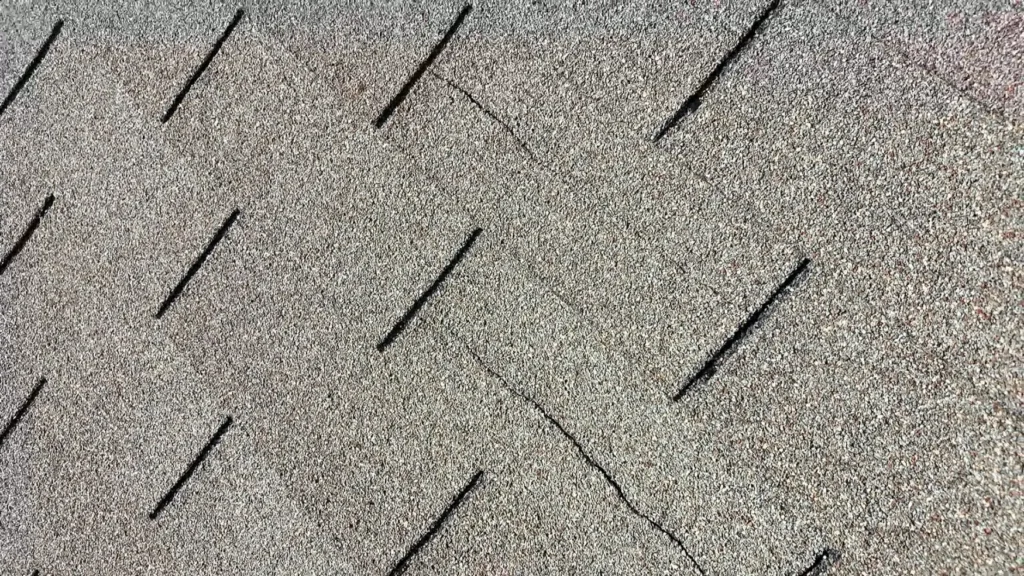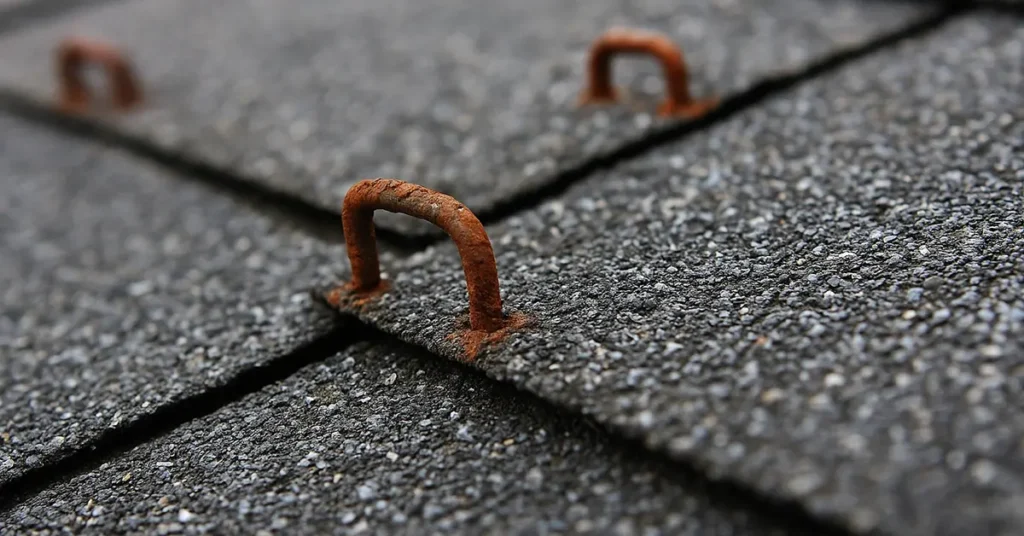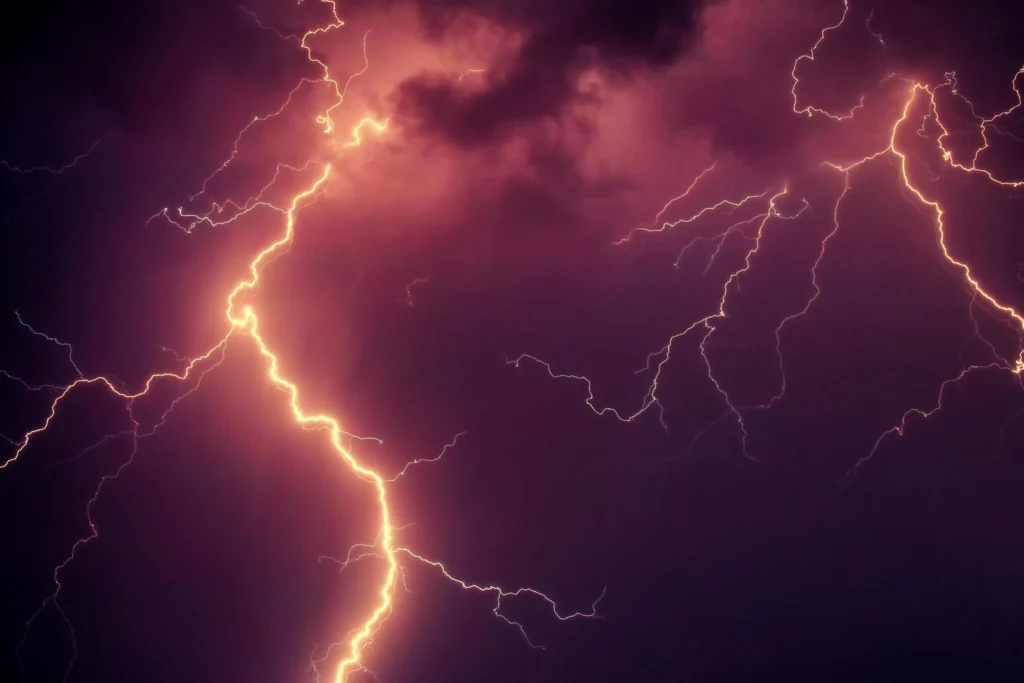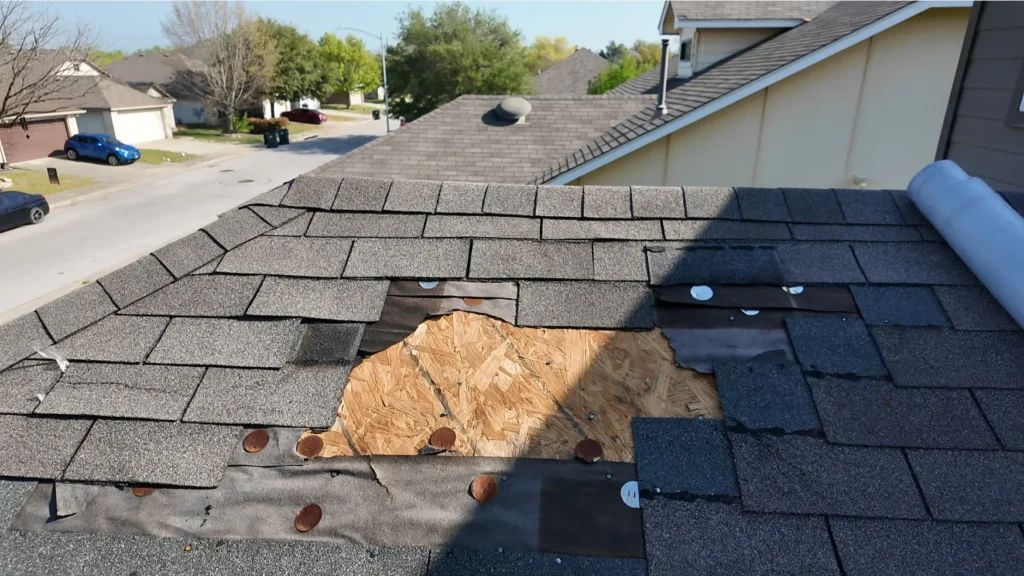Your roof is your home’s first line of defense against harsh weather, and regular inspections are crucial to ensuring its longevity. In our latest YouTube video, we conducted a live roof inspection in Hutto, Texas, walking homeowners through the process of identifying damage before it leads to costly repairs.
One of the most common issues we see during inspections is cracked shingles—a seemingly small issue that can cause leaks, water damage, and even structural deterioration. In this post, we’ll cover the importance of roof inspections, how to identify cracked shingles, and when to take action to protect your home.
What Causes Cracked Shingles on a Roof?
Cracked shingles can result from multiple factors, including:
- Weathering & Aging – Over time, asphalt shingles lose their flexibility, making them more prone to cracking.
- Hail Impact – Hailstones strike shingles with force, causing cracks and splits that weaken the roof.
- Poor Installation – If shingles are not installed properly, they can develop stress points that lead to cracking.
- Thermal Expansion & Contraction – Extreme temperature fluctuations cause shingles to expand and contract, leading to stress fractures.
- Foot Traffic – Walking on your roof improperly can create pressure points that crack shingles.
According to the National Roofing Contractors Association, asphalt shingles typically last 20-30 years, but weather conditions and maintenance play a major role in their longevity.
How to Repair Cracked Asphalt Shingles
If you notice cracked shingles, timely repair is crucial to preventing further damage. Here’s a step-by-step guide to repairing minor cracks:
- Inspect the Shingle Damage – Check for surrounding damage that may require a full replacement.
- Apply Roofing Sealant – Use a high-quality asphalt sealant to fill the crack and prevent water penetration.
- Press the Shingle Down – After applying sealant, press the cracked shingle into place to ensure a secure bond.
- Spread Granules – Sprinkle matching granules over the sealant to blend it with the surrounding shingles.
- Monitor for Additional Damage – Keep an eye on the repaired area to ensure it holds up over time.
For severe cracks, replacing the shingle entirely may be necessary. If damage is widespread, consulting a professional roofing contractor is the best course of action.
Signs of Cracked Shingles Needing Replacement
Not all cracked shingles can be repaired. Here are some key indicators that replacement is necessary:
- Multiple cracks running along the shingle surface
- Curling edges that expose underlying layers
- Water stains on ceilings or attic areas
- Soft or spongy roof decking
- Visible signs of mold or algae growth
Ignoring these signs can lead to water leaks, increased energy costs, and potential structural damage.
Best Roofing Materials to Prevent Shingle Cracking
While traditional asphalt shingles are popular, homeowners looking for durable, long-lasting options should consider:
- Impact-Resistant Asphalt Shingles – Designed to withstand hail and high winds.
- Metal Roofing – Offers superior durability and longevity, with lifespans of 40+ years.
- Composite Shingles – Made from polymer blends, providing increased flexibility and weather resistance.
- Clay or Concrete Tiles – Excellent for hot climates, resistant to cracking from UV exposure.
How Weather Affects Shingle Durability
Extreme weather conditions can accelerate shingle cracking. Texas homeowners are particularly vulnerable to:
- Hailstorms – Sudden impact can crack or shatter shingles, leading to immediate leaks.
- High Winds – Strong gusts lift and bend shingles, increasing the likelihood of cracks.
- UV Exposure – Prolonged sun exposure can cause asphalt shingles to dry out and crack.
- Heavy Rain & Moisture – Water can seep into small cracks, expanding them over time.
Preventative Maintenance for Cracked Shingles
To extend the life of your roof and prevent cracking, follow these maintenance tips:
- Schedule Annual Roof Inspections – Early detection prevents major damage.
- Keep Gutters Clean – Prevents water from backing up and causing roof deterioration.
- Trim Overhanging Branches – Reduces the risk of physical damage from falling limbs.
- Apply Roof Coatings – Protective coatings can extend shingle lifespan by 10+ years.
- Check Attic Ventilation – Proper ventilation reduces moisture buildup, minimizing shingle expansion/contraction.
Cracked vs. Split Shingles – Key Differences
Homeowners often confuse cracked shingles with split shingles. Here’s how they differ:
| Feature | Cracked Shingles | Split Shingles |
|---|---|---|
| Cause | Aging, weather, or poor installation | Extreme impact, such as hail |
| Appearance | Thin, surface-level cracks | Deep splits, often exposing layers below |
| Repair Options | Can be sealed if minor | Requires full replacement |
Understanding this difference ensures you take the right repair or replacement action.
Effects of Cracked Shingles on Roof Insulation
Cracked shingles don’t just allow water leaks—they also compromise your home’s energy efficiency. Openings in shingles allow:
- Heat to escape during winter, leading to higher heating bills.
- Hot air to enter during summer, increasing air conditioning costs.
- Moisture buildup, leading to mold growth in attic insulation.
According to Energy.gov, improving roof and attic insulation can reduce energy costs by up to 15% annually.
FAQ: Homeowner Concerns About Cracked Shingles
How long do cracked shingles last before causing damage?
Cracked shingles can allow leaks within weeks to months, depending on weather conditions. Prompt repairs prevent costly structural damage.
Will my insurance cover cracked shingles?
Insurance may cover shingle damage if caused by storms, hail, or fallen debris. Routine wear and tear is usually not covered.
Can I replace one cracked shingle, or do I need a full roof replacement?
If only a few shingles are damaged, spot repairs work. Widespread cracking may require a full roof replacement.
How much does it cost to fix cracked shingles?
Repair costs range from $150-$500, while a full roof replacement can cost $5,000-$15,000, depending on materials and damage.
How often should I inspect my roof for cracked shingles?
At least twice a year, preferably before and after storm season.
How long do cracked shingles last before causing damage?
Cracked shingles can allow leaks within weeks to months, depending on weather conditions. Prompt repairs prevent costly structural damage.
Will my insurance cover cracked shingles?
Insurance may cover shingle damage if caused by storms, hail, or fallen debris. Routine wear and tear is usually not covered.
Can I replace one cracked shingle, or do I need a full roof replacement?
If only a few shingles are damaged, spot repairs work. Widespread cracking may require a full roof replacement.
How much does it cost to fix cracked shingles?
Repair costs range from $150-$500, while a full roof replacement can cost $5,000-$15,000, depending on materials and damage.
How often should I inspect my roof for cracked shingles?
At least twice a year, preferably before and after storm season.
Final Thoughts: Protect Your Roof from Shingle Cracking
Cracked shingles may seem minor, but they can quickly escalate into serious issues. Regular inspections, proper maintenance, and timely repairs are essential for keeping your roof in top shape.
📌 Watch our full roof inspection video here:
📌 Need an inspection in the Hutto, TX area? Schedule a Free Roof Inspection
By staying proactive, homeowners can extend the life of their roof and prevent expensive repairs. If you suspect cracked or damaged shingles, contact a professional roofing expert today!




